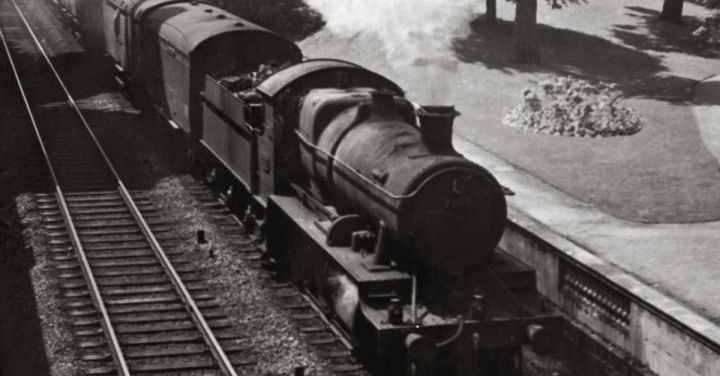When we think of the Civil War, images of soldiers marching through battlefields and cannons firing come to mind. However, there is one unsung hero of the war that often gets overlooked – the military trains.
During the Civil War, railways played a crucial role in transportation and logistics for both the Union and Confederate armies. These trains were the lifeline that kept the soldiers supplied with ammunition, food, and medical resources. Without them, the war effort would have been severely hindered.
The military trains were not your typical passenger trains. They were specifically designed and built to meet the unique needs of the war. These trains consisted of a locomotive, flatcars, boxcars, and sometimes even hospital cars. Each car had a specific purpose, whether it was carrying troops, horses, or supplies.
The trains would travel from depots located near the front lines to supply bases and hospitals further back. They would transport everything from rifles and cannonballs to medical equipment and bandages. The trains were constantly on the move, ensuring that the soldiers had everything they needed to continue fighting.
One of the challenges faced by the military trains was the constant threat of attack. Both the Union and Confederate armies understood the importance of disrupting the enemy’s supply lines. As a result, trains were often targeted by enemy forces. To counter this, the trains were heavily guarded by soldiers armed with rifles and cannons. They would travel in convoys, providing protection to the valuable cargo they carried.
The military trains also played a crucial role in the evacuation and transportation of wounded soldiers. Hospital cars were equipped with beds and medical supplies, allowing for the efficient transport of injured troops. These trains would travel to field hospitals where the wounded would receive medical care before being transported to larger hospitals further away from the front lines.
In addition to their logistical role, military trains also provided a means of transportation for soldiers. Troop trains would transport soldiers from one location to another, allowing for the quick movement of troops to areas of strategic importance. This was especially important during major battles, where the timely arrival of reinforcements could turn the tide of the war.
The military trains were not without their challenges. The tracks often suffered damage from enemy attacks, requiring constant repairs. The trains also had to contend with the harsh weather conditions of the war, from scorching heat to freezing cold. Despite these challenges, the military trains continued to operate, ensuring that the soldiers had the resources they needed to carry on the fight.
When the Civil War came to an end, the military trains faded into the background, overshadowed by the more glamorous aspects of the war. However, their contributions should not be forgotten. They were the unsung heroes that kept the armies supplied and the wounded cared for. Without them, the outcome of the war may have been very different.
In conclusion, the military trains were a vital component of the Civil War. They played a crucial role in supplying the soldiers with the resources they needed and transporting the wounded to safety. Despite the constant threats and challenges they faced, the military trains persevered, ensuring that the war effort continued. Let us not forget their important contributions to the history of the Civil War.
